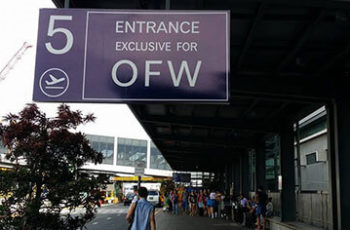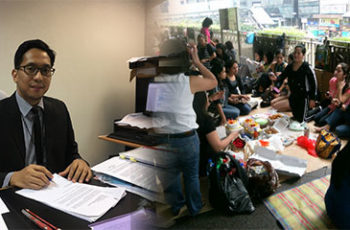There are more than 250,000 Overseas Filipino Workers in Kuwait where 170,000 among them are working as house helpers or domestic workers.
Following Kuwait’s non-grata declaration of Philippine ambassador Renato Villa, retired ambassador Apolinario Lozada believed it will create a big impact not only on the OFWs’ working condition but on oil supply and peace negotiations as well.
“The expulsion means Kuwait has lost its respect to our foreign service and to our foreign policy. Second, Kuwait will no longer be our number one ally in the OIC (Organization of Islamic Cooperation) and in the OPEC (Organization of the Petroleum Exporting Countries).”
Villa was expelled in Kuwait as a protest of the Kuwaiti government to Philippine’s rescue operations through the Philippine Embassy which allegedly was uncoordinated with their authorities.
Kuwait served as the second main source of oil by the Philippines next to Saudi Arabia.
On the other hand, because of the tension between the two countries, the signing of the Memorandum of Understanding stipulating the rights of the domestic helpers and the conditions on how they will be protected while working in Kuwait may still take time before it will finally be signed.
Kuwait is a member of OIC (Organization of Islamic Cooperation) which supports peace negotiations between the Philippine government and MILF (Moro Islamic Liberation Front).
“Ito ang problema dito eh, sinaktan natin ang Kuwait, lahat ng mga kaibigan ng Kuwait will have to close in together with Kuwait,” Lozada added.
As of this writing, there are more than 4,000 undocumented workers who became recipients of amnesty program by the Kuwaiti government.
Meanwhile, the World Bank doesn’t see a big effect on the remittances of OFWs from Kuwait being the 4th among the countries where cash remittances are coming from.
In terms of trade, Kuwait places the 5th among the export markets of the Philippines in the Middle East.
Source : ABS-CBN






